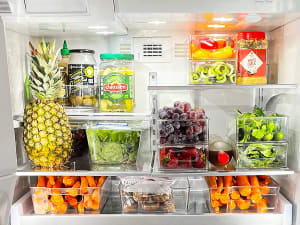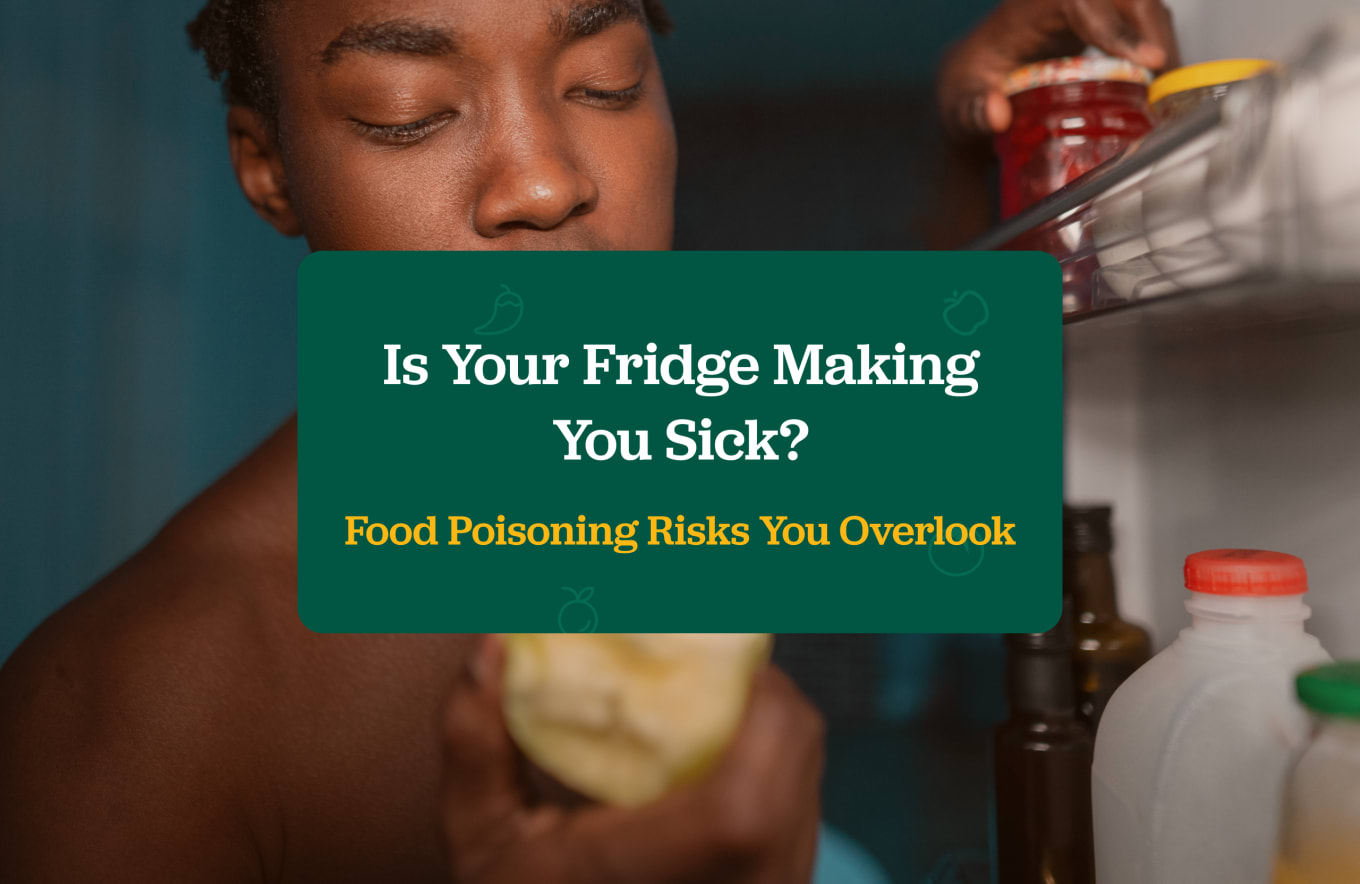Is Your Fridge Making You Sick?
When was the last time you opened your fridge and truly paid attention to what’s inside? Not just grabbing what you need, but thoroughly inspecting the nooks, corners, and shelves? If you can’t remember, you’re not alone—but your fridge could be harboring dangers you’ve never considered. From cross-contamination to incorrect temperatures, your fridge might contribute to foodborne illnesses. In this guide, we’ll explore the hidden food poisoning risks lurking in your fridge and reveal how you can create a safer, healthier storage environment for your family.
Read: How to Avoid Food Poisoning This Festive Season
Common Fridge Mistakes You Might Be Making
- You might be making common mistakes that could compromise the safety of your food. For instance, storing raw meat on the top shelf instead of the bottom is a frequent error. Likewise, placing eggs in the fridge door, where temperatures fluctuate, can increase the risk of spoilage.Additionally, leaving cooked foods uncovered exposes them to airborne bacteria. Furthermore, using grocery store plastic bags instead of airtight containers for perishable items can accelerate spoilage.

How to Make Your Fridge Safe Again
To begin with, effective organization is key.
- Top Shelf: Store ready-to-eat foods like drinks and leftovers.
- Middle Shelves: Place dairy, eggs (in their carton), and packaged foods here.
- Bottom Shelf: Keep raw meats and fish on trays to catch drips.
- Drawers: Store fruits and vegetables separately to prevent spoilage.
Secondly, setting the right temperature is crucial. Use a thermometer to ensure your fridge is maintained at the ideal temperature.
Thirdly, regular cleaning is essential. Wipe down shelves weekly with a mild detergent or vinegar solution to prevent bacteria buildup. Deep clean drawers and gaskets monthly to maintain a hygienic environment. Alternatively, you can hire a professional cleaning service, such as Eden Life Cleaning Service, for a thorough sanitization.
Lastly, labeling and dating items is a simple yet effective practice. Use stickers or markers to label leftovers, helping you track freshness and avoid keeping food for too long.
What to Watch Out For: Early Warning Signs
-
Pay attention to these early warning signs of a compromised fridge:
- Foul odors or sticky residues
- Frost buildup or inconsistent cooling
- Visible mold on food or inside the fridge
- Foods developing unusual textures or smells, even if not past their expiration date
The Cost of Neglect: Real-Life Consequences
Neglecting fridge maintenance can have serious consequences. A single lapse can lead to foodborne illnesses, causing symptoms like nausea, vomiting, diarrhea, or even more severe complications. In particular, vulnerable populations, such as children, pregnant women, and the elderly, are at higher risk.
Eco-Friendly Tips for a Healthy Fridge
Moreover, you can incorporate eco-friendly practices into your fridge maintenance routine.
- Reduce food waste by planning meals and buying only what you need.
- Use glass containers to keep food fresher for longer.
- Store fruits like apples and bananas separately to prevent other produce from spoiling too quickly.
Your Fridge Safety Checklist
Make fridge safety a habit with this quick checklist:
- Check and adjust the fridge temperature weekly.
- Organize food by shelf and purpose.
- Clean spills immediately.
- Label and date leftovers.
- Remove expired items during your weekly cleaning routine.
Your fridge is vital for maintaining a healthy household. Take time today to inspect, organize, and clean it for a safer food storage environment. For hard-to-reach areas or stubborn messes, Eden Life Cleaning Service can provide the professional touch your fridge needs.
Book your professional fridge cleaning today and enjoy a cleaner, healthier home.


